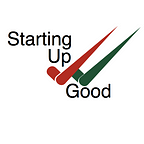What to Watch This Week: SOCAP’s session on Corporate Impact Investing
Given our ongoing interest in the role that corporate venture capital can play in impact investing, we were excited to see this year’s SOCAP17 session called Corporate Impact Investors: An Emerging Cohort.
Aptly moderated by Robynn Steffen of the Omidyar Network, the panel included these providers of early stage risk capital:
- Kai Bond — Investor at Comcast Ventures Catalyst Fund
- Suzanne DiBianca — EVP of Corporate Relations at Salesforce
- Erin Reilly — VP of Social Impact and GM of Twilio.org at Twilio
The Comcast Ventures Catalyst Fund is a $20 million fund focused on investing in early stage technology startups led by minority entrepreneurs. Established in 2011, the fund regularly leverages the knowledge, networks and resources of Comcast Ventures and Comcast NBCUniversal
Launched earlier this month, the Salesforce Impact Fund will drive $50 million of investments towards its focus areas of workforce development, equality, sustainability, and the social sector.
The Twilio.org Impact Fund is only slightly older, launched in May of 2017. Its investments in social enterprises that are accelerating impact through innovative communications technologies range from $50,000 to $250,000 in seed or Series A funding rounds.
To set the stage, each panelist began by discussing the motivations behind their respective funds. Mr. Bond spoke about the business opportunity of supporting diversity in the venture ecosystem. Ms. Reilly explained how Twilio believes that communications can help solve many of the world’s challenges. Ms. DiBianca described how Salesforce, as the third largest corporate VC, could extend its philanthropic activity in a different, startup market.
Each fund has its own criteria for investments, but both Twilio and Salesforce say that a company must be using its products to be considered. As for sourcing investment opportunities, the Catalyst Fund views the post-accelerator phase as the right time to partner so it works with the likes of Y Combinator, 500 Startups and angel investors.
In explaining the importance of technical expertise to partner companies, Ms. Reilly described the “Twilio Bear Hug”, which includes additional technical expertise, early access to new products and features, favorable pricing, and a community of volunteer developers. Ms. DiBianca expanded on this “Beyond Capital” idea by describing how the 270 companies in the Salesforce venture portfolio also gain access to its customer base, which is 150,000 strong. Salesforce brings its portfolio of companies together regularly to help facilitate information and investor network sharing.
Why focus on minority entrepreneurs? Mr. Bond says it’s critical to have all minds at the table. His fund seeks to “cultivate innovation from voices that have been unheard for a long time”. But all founders face similar challenges when it comes to figuring out the appropriate pacing of scale. Sixty percent of Catalyst Fund’s portfolio companies have some level of strategic integration with Comcast-NBCUniversal. The trick is figuring out the best time to bring in resources that will ensure success for the startup.
The panelists covered the intricacies of aligning impact investing with other activities and areas in their respective businesses. Ms. DiBianca talked about how the focus area of workforce development fits in with the Salesforces’s investment in artificial intelligence. While Salesforce’s impact investing activities don’t have direct ties to its philanthropic arm, Twilio’s philanthropy tends to be more closely linked. And while the Catalyst Fund has separate and independent reporting lines to its corporate venture and philanthropy funds, companies are often referred back and forth to the funding source that is most appropriate for their needs.
When asked what advice they might share with peer companies that are considering impact investing, the panelists suggested taking advantage of Donor Advised Funds (DAFs) for their existing infrastructure. But Ms. Reilly warned that DAF’s require enough time to perform their own due diligence so you need to account for that in your planning. The panelists also plugged joining Pledge 1%, an initiative for companies (regardless of stage) to Pledge 1% of equity, profit, product, and/or employee time for their communities.
The panelists also agreed that there is a lot more camaraderie in corporate impact investing than in other corporate deal making. They recommend partnering with other impact impact investors whose priorities are aligned with yours. From there, the deal flow comes naturally.
In her final thoughts about what corporate impact investing might look like in five years, Ms. Reilly laid out a call to action for all investors: All companies that make grants should also be impact investors. The emerging cohort of companies that are early in the game should use their networks and influence to “supercharge” impact investing’s growth within peer corporations.
Clearly, much more was covered in this hour-long session than we can summarize here. If you have the time, watch the entire conversation to learn from these experienced and passionate professionals.
